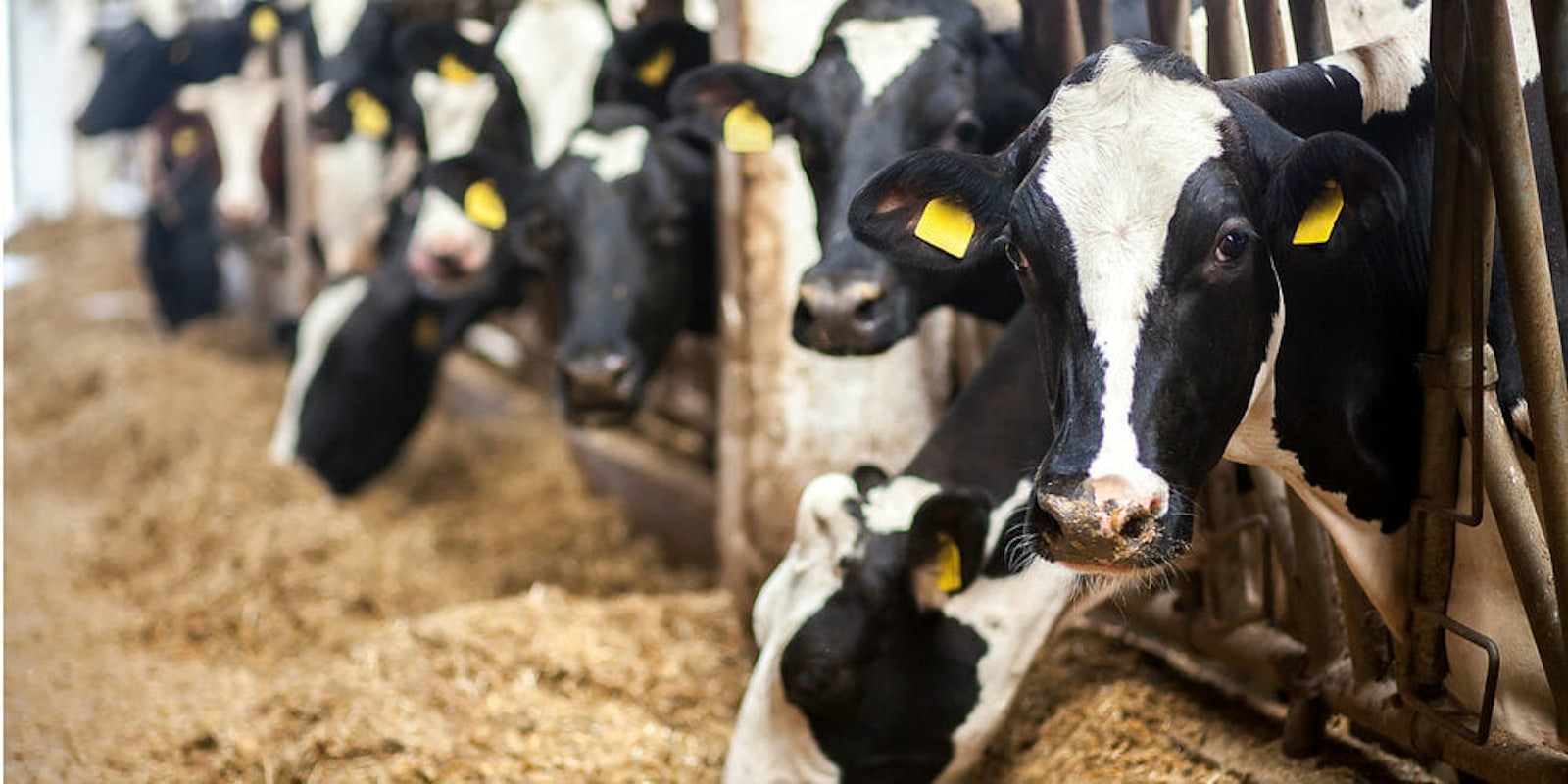Researchers believe a special antibody found in cows could provide a medical breakthrough in the treatment of HIV.
A study published in Nature describes how four cows injected with an HIV protein rapidly produced a powerful antibody capable of neutralizing several varieties of the virus.
The key to successfully fighting HIV is to develop a cure that can neutralize a broad range of HIV types. That’s important because HIV constantly mutates, never giving a patient’s immune system the chance to come up with a solution. However, after years of being infected, only a small group of humans with HIV (about 1 percent) end up producing a potent variety of “broadly neutralizing antibodies” that attack the areas of HIV that can’t mutate.
“We are faced with a dilemma,” Dr. Anthony Fauci, director of the National Institute of Allergy and Infectious Diseases, told Time. “People infected do not seem to make really good antibodies in terms of potency and breadth.”
Researchers at the Scripps Research Institute, the International AIDS Vaccine Initiative (IAVI), and Texas A&M discovered that four cows tested with different HIV viruses produced these “broadly neutralizing antibodies” in a matter of weeks, a feat that usually takes humans three to five years—if ever. Scientists took serum from the cows, which can’t get the virus, and tested it on four types of HIV. All of the cattle produced the antibodies. One cow’s blood was then tested against several HIV strains. It neutralized 20 percent of the viruses after 42 days. After about a year, the cow prevented 96 percent of the 117 different types of HIV.
The inspiration for testing cows was simple: Humans who produce broadly neutralizing antibodies have more than twice the normal amount of amino acids in their HDCR3 antibody region. Cows naturally produce even longer amino acids strings in that same region.
According to the BBC, the U.S. National Institutes of Health said the findings were of “great interest.”
“As a scientist, this is really exciting,” Devin Sok, the director of antibody discovery and development at IAVI, told Time. “To put it into perspective, the first broadly neutralizing antibodies were discovered in the 1990s. Since then, we’ve been trying to elicit these antibodies through immunization, and we’ve never been able to do it until now. Until we have immunized a cow. This has given some information for how to do it so that hopefully we can apply that to humans.”
Researchers will now attempt to generate long HCDR3 sections in humans to serve as the basis for an HIV vaccine.
H/T BBC


